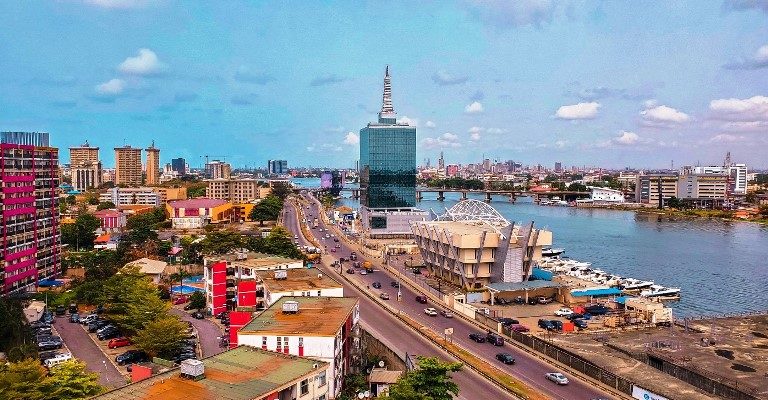Crafting the Blueprint: CEO perspectives on Nigeria’s digital economy – Pathways to growth and innovation.
Nigeria, with its population exceeding 220 million and a dynamic youth demographic, stands on the brink of a digital revolution. The digital economy, encompassing the Internet Economy, Web Economy, Cryptoeconomy, and New Economy, is poised to transform the nation’s economic landscape.
RELATED: Ike Nnamani on ‘Myths and Realities of Nigerian Digital Economy’
Recognizing this potential, Nigeria has outlined eight strategic pillars for its digital economy development: Developmental Regulation, Digital Literacy & Skills, Solid Infrastructure, Service Infrastructure, Digital Services Development & Promotion, Soft Infrastructure, Digital Society & Emerging Technology, and Indigenous Content Promotion & Adoption.
President Bola Ahmed Tinubu, at a recent engagement in Nairobi, Kenya, emphasized Nigeria’s readiness to harness its youthful population to emerge as a global digital economy powerhouse. Represented by Vice President Kashim Shettima at the meeting of African Heads of State on the 21st Replenishment of the International Development Association (IDA21), President Tinubu highlighted plans to transform Nigeria into a global hub for outsourcing talent in the digital and creative economy sectors. “Our interventions in the digital economy have been so extensive that we are no longer just boasting of having the most unicorns, but preparing to serve as a global hub for outsourcing talents,” he declared.
“Sub-Saharan Africa hosts only 2% of global data centers, with 50% in South Africa” – Lars Christer Johannisson, CEO of Rack Centre
Infrastructure as the Foundation
Leading ICT CEOs stress that robust digital infrastructure is fundamental to Nigeria’s digital economy. In IT Edge News’ special feature on Nigeria’s digital economy, industry leaders unanimously call for prioritizing investments in broadband infrastructure to ensure widespread access to high-speed internet. They advocate for encouraging private sector investment in data centres to support data localization. Nigeria aims to achieve over 70% broadband penetration nationwide within the next five years, a goal that requires deliberate government support for infrastructure rollout.
Ikechukwu Nnamani, CEO of Digital Realty – Nigeria, underscores the importance of a comprehensive ICT infrastructure. “Nigeria’s rapid digitization necessitates robust ICT infrastructure covering access, metro, long-distance, and international connectivity networks. These networks require next-generation data centers for data storage and exchange,” he explains.
Lars Christer Johannisson, CEO of Rack Centre, highlights the need for more data centres. “Sub-Saharan Africa hosts only 2% of global data centers, with 50% in South Africa. Nigeria’s demographics, cloud service adoption, mobile/broadband penetration, and data sovereignty offer a 12% CAGR in our sector. We plan a capacity increase of almost 50% in the near future,” he notes.
Promoting Digital Skills and Innovation
Wale Owoeye, Managing Director/CEO of Cedarview Communications Limited, agrees with Nnamani and Johannisson on the need for expanded data center capacity. He emphasizes the importance of digital literacy and skills development, adoption of emerging technologies, fostering innovation, and ensuring data privacy and cybersecurity.
Muhammed Rudman, CEO of Internet Exchange Point of Nigeria (IXPN), points out the challenges of multiple taxation and high energy costs affecting telecom operators. He calls for government intervention to ensure a level playing field and support for the telecommunications sector.
To leverage its youth population, Nigeria must prioritize digital skills development from primary education through higher learning institutions and vocational training centres. “Addressing connectivity and literacy challenges is crucial to ensuring accessibility,” stresses Johnson Oyeniyi, CEO of Flexify Solutions.
Collins Onuegbu, Chairman of Signal Alliance Technology Holding (SATH), highlighted that successful local software ventures often struggle to reach their full potential due to Nigeria’s challenging business environment. Dr. Ayotunde Coker, CEO of Open Access Data Centres (OADC), stressed that optimal economic benefits from broadband adoption require increased penetration. Ibrahim Dikko, Managing Director/CEO of Backbone Connectivity Nigeria Limited, emphasized the importance of a collaborative ecosystem in the telecommunications industry.
“Addressing connectivity and literacy challenges is crucial to ensuring accessibility” – Johnson Oyeniyi, CEO of Flexify Solutions.
Yemi Oshodi, CEO of Information Connectivity Solutions Limited (ICSL), identified power as the most significant obstacle. Mr. Lanre Ayoola, Chairman/CEO of Tranter IT, highlighted the need to build local capacity without the burden of Forex challenges. Lanre Ore, CEO of FibreOne Broadband, suggested that government could foster innovation and growth by providing tax incentives and facilitating access to financing. Tony Izuagbe Emoekpere, CEO of Anchor Telecoms and President of the Association of Telecommunications Companies of Nigeria (ATCON), emphasized the need for government intervention to address the infrastructure deficit.
Morenikeji Aniye, Founder and CEO of Hotspot Network Limited, advocates for government policies to provide low-interest loans for technology investments and workforce training. He says “Government can develop policies and frameworks targeted at telecommunications service and ICT companies for access to low-interest loans for investment in technology and infrastructure upgrades, workforce training, and business expansion without being burdened by high-interest debt.” Tunji Alabi, the Managing Director of Infratel Africa agrees with him. He says “Connectivity in underserved and unserved communities in Nigeria provides the potential for transformative change in the quality of life and economic opportunities for these dwellers. The provision of infrastructure is the foundation and bedrock on which digital transformational services can be delivered.”
Enabling Regulatory Environment and Data Protection
Creating a supportive regulatory environment is crucial for sustaining digital economy growth. The establishment of the Startup Act aims to streamline processes and provide incentives for startups and small businesses. Dr. Yele Okeremi, CEO and Co-Founder of Precise Financial Systems (PFS), believes that Nigeria can achieve self-reliance in technology through policies that prioritize local talent.
Data security and privacy are paramount in the digital transformation journey. Abdulaziz Aliyu Ari, CEO of Switch Solutions, highlights the growing demand for effective data protection services as cyber threats increase. John Nwachukwu, Chief Strategy and Executive Officer (CSEO) at Zoracom, and Chukwuebuka Ume-Ezeoke, Chief Technology Officer at CED Technologies, emphasize the need for organizations to integrate data protection and cybersecurity into their corporate strategies.
Patrick Ede, Director of Operations at PPC Limited, underscores the importance of adapting to the fast-evolving ICT landscape. “The transition from traditional IT to emerging technologies like AI and blockchain is impacting new services, products, and applications across sectors,” he observes.
2019 World Bank’s Digital Economy Diagnostic Report remains relevant
The World Bank’s Digital Economy Diagnostic Report of 2019 remains relevant today, emphasizing the need for increased investment in infrastructure, an enabling regulatory environment, radical reforms for skill development, and public-private partnerships to drive digital economy growth.
To meet the 2030 aspirations of greater digital economy access and creating 100 million jobs, Nigeria must continue to build a robust ecosystem that fosters innovation and entrepreneurship.

































